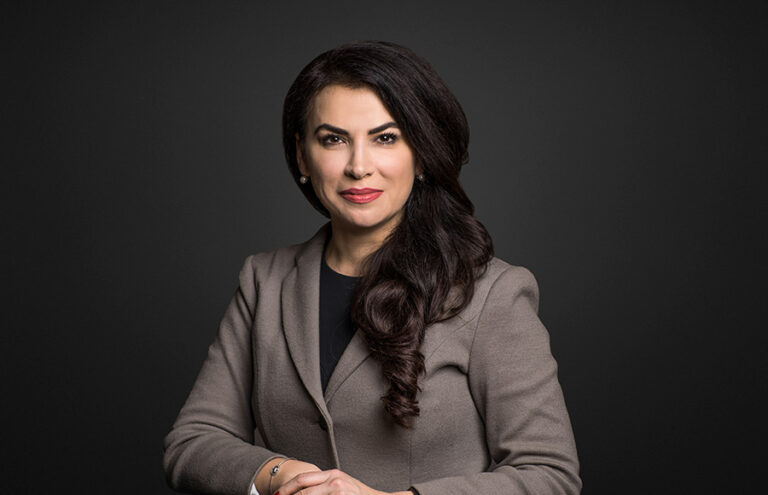Date of publication: 27 January 2015
Olena Omelchenko, Partner, Attorney at Law, Head of International Trade Practice
Source: Ekonomichna Pravda
Russia made a statement on reforming the United gas transportation system of Ukraine at the meeting of the WTO Council for Trade in Services held on November 28, 2014.
Moscow believes that the Ukrainian law on reforming the United GTS control system of August 16, 2014 does not comply with the WTO rules and shall be cancelled.
It was also reported in the web-based media citing Maksim Medvedkov, Head of the Department for Trade Negotiations at the Russian Ministry of Economic Development.
The above said Kremlin statement means that Russia can request consultations with Ukraine as part of the WTO dispute settlement procedure.
Therefore, we can assume that Moscow is concerned about two aspects.
The first is a possible violation by Ukraine of the non-discrimination principle with respect to foreign companies’ access to the market for gas transportation and storage services.
The second is inconsistency with the international commitments undertaken by Ukraine within the framework of the WTO on statutory form and scope of participation of foreign companies in the creation of the Unified gas transportation system operator.
Should the request for consultations be prepared, Russia, most likely, will refer to non-compliance by Ukraine with the provisions of the General Agreement on Trade in Services (GATS).
Ukraine can form defense tactics based on the article Security Exceptions of the GATS.
Kyiv can also assert that the law of Ukraine does not create discriminatory conditions for access to the market of services related to gas transportation, because it does not restrict provision of such services by foreign business entities through own gas transportation and storage systems in Ukraine.
Further, Ukraine can refer to the report of the Working Group on Ukraine’s accession to the WTO of January 25, 2008.
It provides that transportation of oil and gas though pipelines pertains to activities of natural monopolies and is subject to licensing. Prices and tariffs for such services are subject to state regulation.
Delivery of request for consultations by Russia will depend on the Gazprom’s interest and the availability of funding for legal advisers for ensuring dispute settlement case consideration.
The key factor can also be the results of the consultations initiated by Russia, which have been continuing since April 2014 in the case of “The European Union and its Member States − some measures relating to the energy sector”, the so-called “Energy Package”.
The consultations are focused on discussion of claims to the EU directives, which are directly referred to in the law of Ukraine. Ukraine is not a third party in consultations between Russia and the EU, but their results can set a precedent for further development of case within the framework of the Ukrainian GTS.
If it comes to creation of a group of the WTO experts for resolving the dispute on “Energy Package”, Ukraine will have an opportunity to participate as a third party, and it is likely to take advantage of it.
If Russia wins the case on Ukraine’s GTS in the WTO, Kyiv will have to bring the law in conformity with the WTO rules.
The relevant judgment can be obtained no earlier than in two years. Dispute settlement in the WTO has its procedures and is divided into four stages: consultations, creation of a group of experts, case consideration in the appellate body, and control over implementation of the recommendations and decisions.
The recommendations and decisions of the Dispute Settlement Body cannot refer to compensation or recovery of losses in the case to the Russian Federation.
Implementation of the recommendations is a preferred completion of the proceedings within the framework of the WTO agreement on dispute resolution rules and procedures.
At the meeting of the Dispute Settlement Body, which is held 30 days after approval of the recommendations of the expert group or the appellate body, the defendant appellant must present the recommendations implementation plan.
If immediate implementation of recommendations is impossible, it must be done in a reasonable time as defined by the parties. Implementation in full must not be delayed for more than 15 months following approval of the report.
The principle of cancellation of concessions, which can be used as a last resort to meet the obligations, is applicable only in case of failure to perform decision of the Dispute Settlement Body within the time limits set.
Responsive actions are temporary and must be used before implementation of recommendations or reaching a mutually acceptable solution. Unilateral responsive actions are not permitted.
Therefore, Ukraine’s position is strong. Even if consultations are held in the WTO, it does not mean that it comes to convening of an expert group to settle the dispute and return the situation with the Ukrainian GTS to the status quo.

